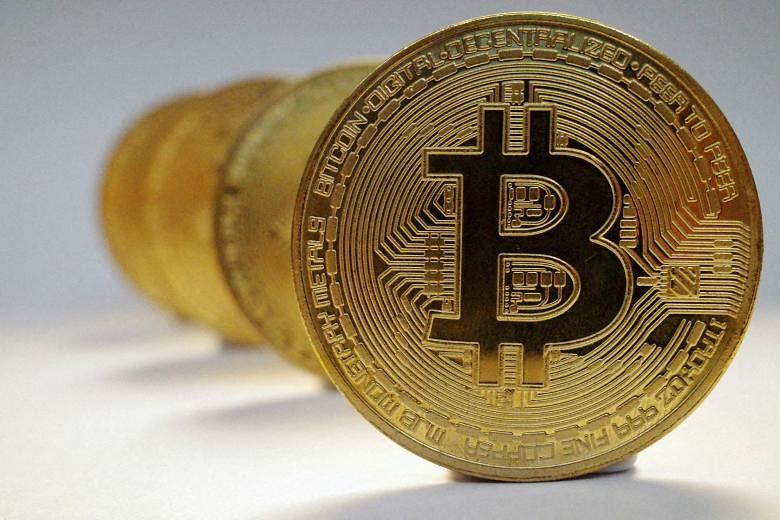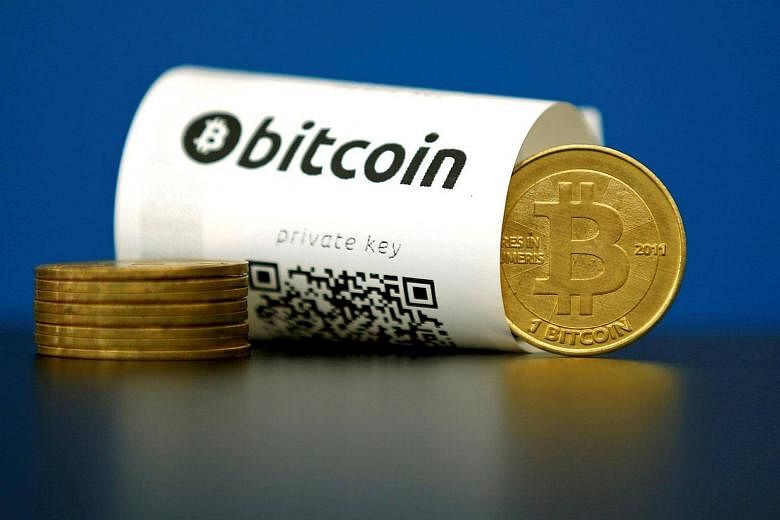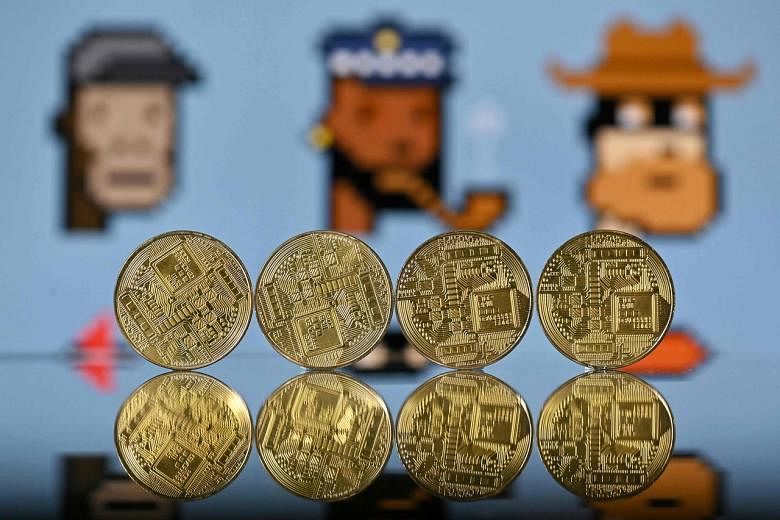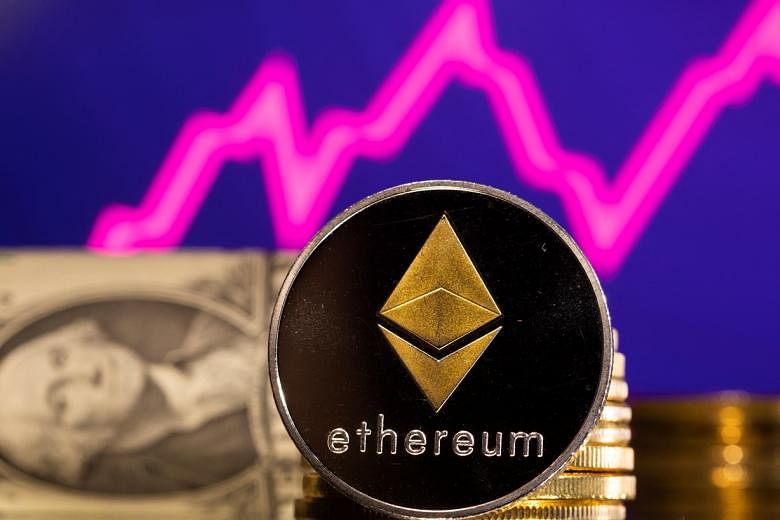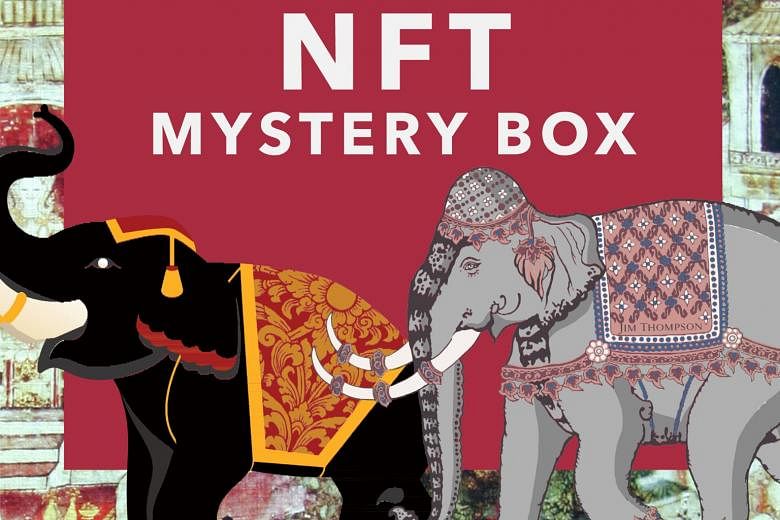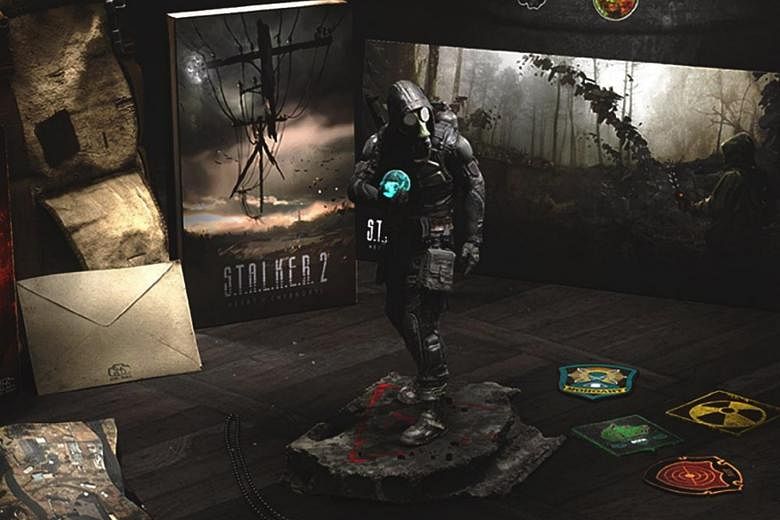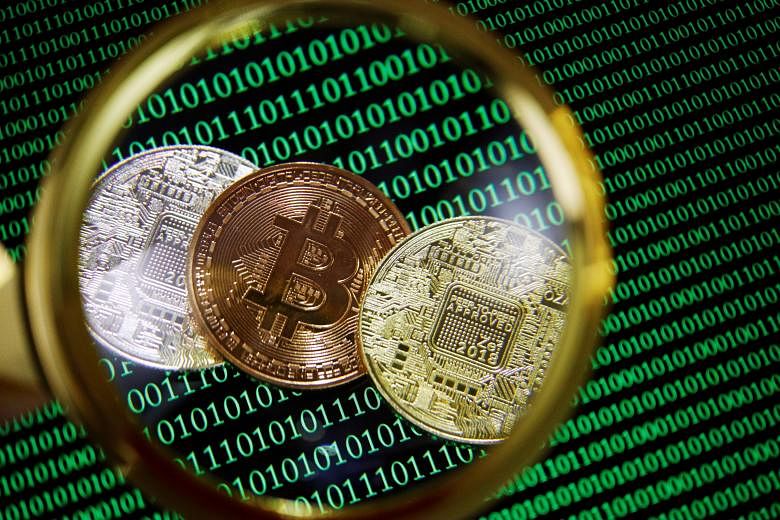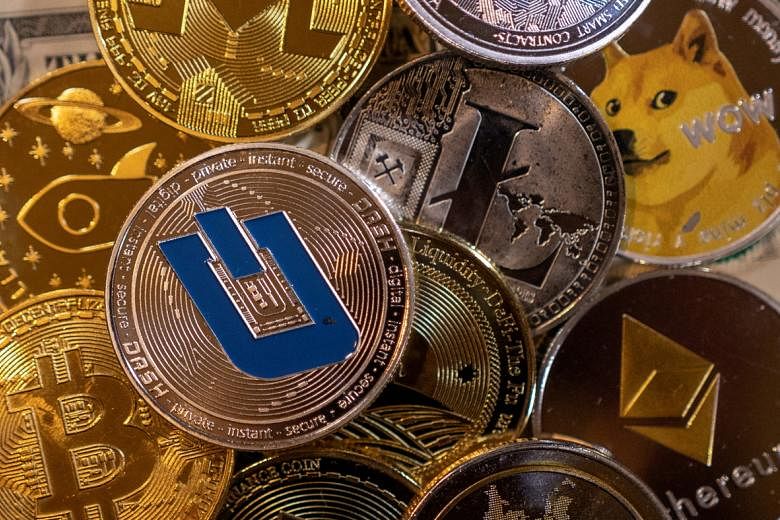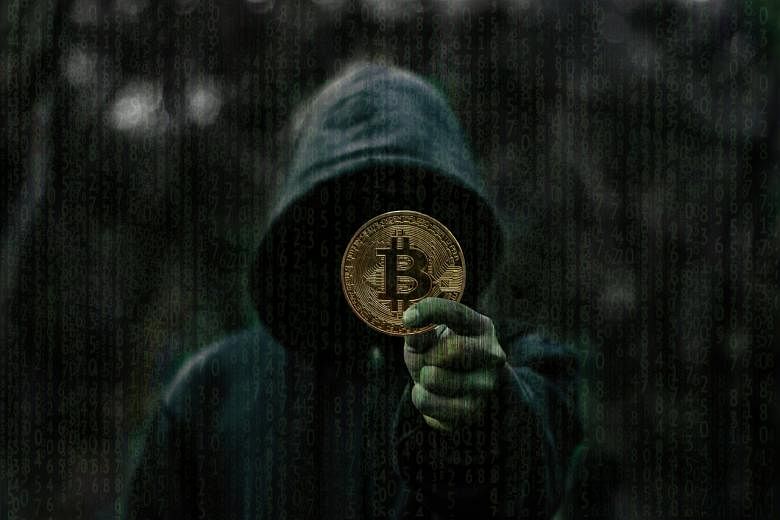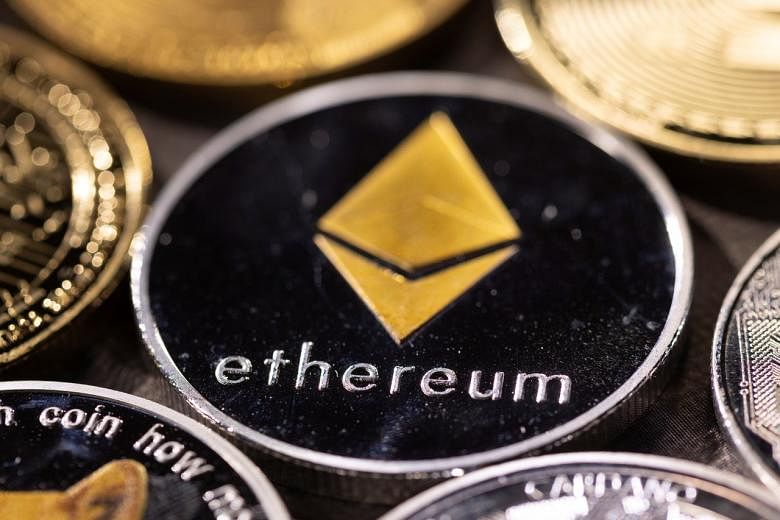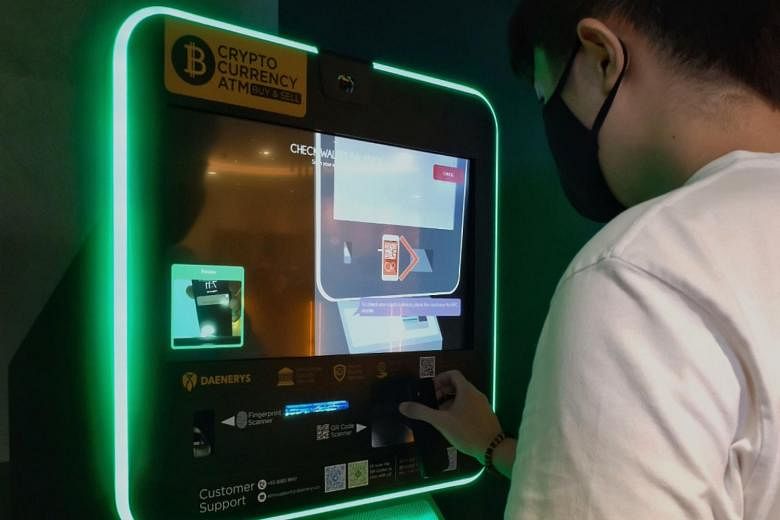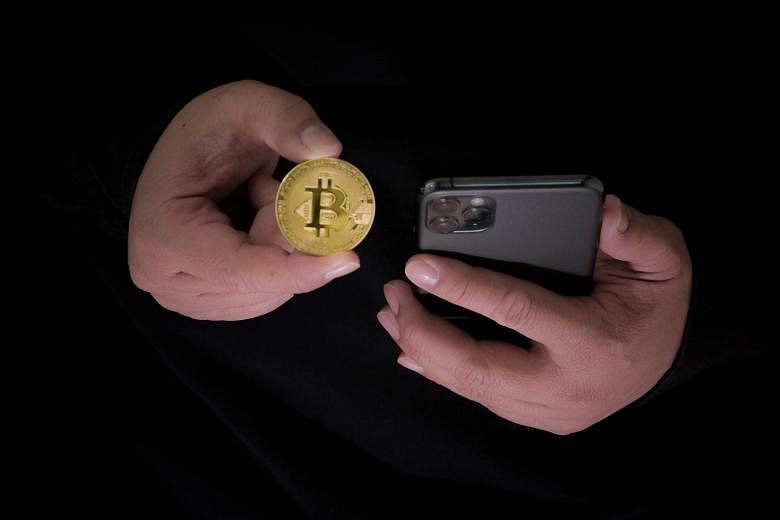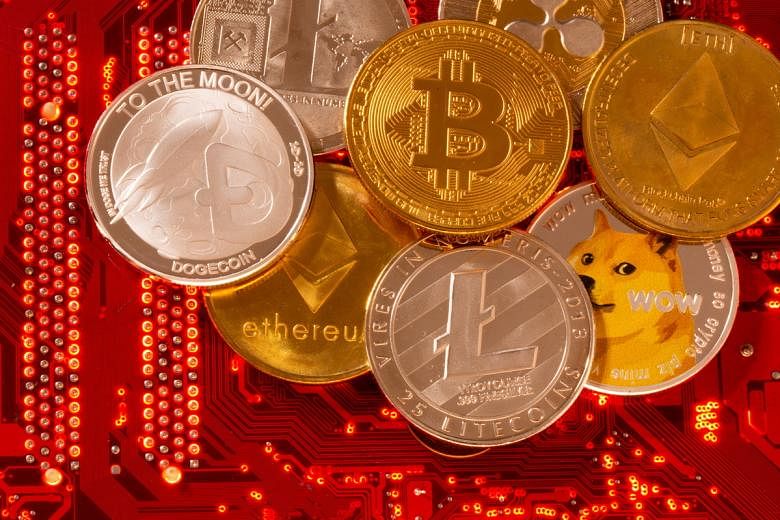Crypto, NFT enthusiasts meet their match: Angry gamers
The new S.T.A.L.K.E.R. would incorporate the crypto-based assets known as non-fungible tokens, or NFTs. PHOTO: S.T.A.L.K.E.R. 2/INSTAGRAM
JAN 26, 2022
SAN FRANCISCO (NYTIMES) - For years, Mr Christian Lantz has played S.T.A.L.K.E.R., a first-person shooter video game set in a post-apocalyptic Ukraine that became a cult hit for its immersive role playing. So when Mr Lantz, an 18-year-old high school student, heard that a sequel was coming this year, he knew he had to buy it.
That was until GSC Game World, the Ukrainian company behind the computer game, announced last month that the new S.T.A.L.K.E.R. would incorporate the crypto-based assets known as non-fungible tokens, or NFTs.
In the new game, GSC said, players could buy and sell NFTs of items such as clothing for their in-game characters. The company heralded the move as a "transformative step" toward the virtual world known as the metaverse.
Mr Lantz was incensed. He joined thousands of fans on Twitter and Reddit who raged against NFTs in S.T.A.L.K.E.R.'s sequel. The game maker, they said, was simply looking to squeeze more money out of its players. The backlash was so intense that GSC quickly reversed itself and abandoned its NFT plan.
"The studio was abusing its popularity," said Mr Lantz, who lives in Ontario. "It's so obviously being done for profit instead of just creating a beautiful game."
For more than a year, cryptomania has been at a fever pitch. Cryptocurrencies such as Bitcoin and Ethereum have soared in value. Crypto-based assets such as NFTs have taken off.
Mr Jack Dorsey, a Twitter founder, recently renamed one of his companies Block in honour of the blockchain, the distributed ledger system that powers digital currencies. Ms Melania Trump has auctioned off her own NFTs.
But to some, the crypto craze has gone too far, too fast. Sceptics argue that cryptocurrencies and related assets such as NFTs are digital Ponzi schemes, with prices artificially inflated beyond their true value. Some question whether cryptocurrencies and the blockchain, which are slippery concepts, have any long-term utility.
Nowhere has there been more unhappiness than in the games community, where clashes over crypto have increasingly erupted between users and major game studios such as Ubisoft, Square Enix and Zynga. In many of the encounters, the gamers have prevailed - at least for now.
"People are being sold buzzwords," said Mr Mutahar Anas, a gamer and YouTuber with 3 million subscribers. Those pushing NFTs in games, he said, are "trying to sell you snake oil".
In recent months, at least a half-dozen game studios have revealed plans to add NFTs to their games or said they were considering doing so.
The digital assets, which are verified by blockchain technology, give proof of authenticity and ownership. That provides gamers with unique digital items, game makers said, which can enrich those that sell the NFTs in online marketplaces.
Game publishers said NFTs could also potentially be transferred among games in the future, meaning items from one games franchise could affect gameplay in another.
But players said they saw the moves as a blatant cash grab.
"I just hate that they keep finding ways to nickel-and-dime us in whatever way they can," said Mr Matt Kee, 22, a gamer who took to Twitter in anger this month after Square Enix, which produces one of his favourite games, Kingdom Hearts, said it was pushing into NFTs.
"I don't see anywhere mentioning how that benefits the gamer, how that improves gameplay. It's always about 'How can I make money off this?'"
Much of their resentment is rooted in the encroachment of micro transactions in video games. Over the years, game makers have found more ways to profit from users by making them pay to upgrade characters or enhance their level of play inside the games. Even if people had already paid US$60 (S$81) or more for a game, they were asked to fork over more money for digital items such as clothing or weapons for characters.
In one well-known incident in 2006, the role-playing game The Elder Scrolls IV: Oblivion charged users US$2.50 for a set of armour for their character's horse.
"'It was only a few bucks, but I remember thinking, 'Why won't they just give us the horse armour?'" said Mr Eric Hild, 31, a beer brewer from Decorah, Iowa. "'Why make us pay for it?'"
Ms Merritt K, a game streamer and editor at Fanbyte, a games industry site, said gamers' antagonism toward the companies had built up over the past decade partly because of the growing number of micro transactions. So when game makers introduced NFTs as an additional element to buy and sell, she said, players were "primed to call this stuff out". "We've been here before."
That has led to bursts of gamer outrage, which have rattled the game companies. In December, Sega Sammy, the maker of the Sonic The Hedgehog game, expressed reservations about its NFT and crypto plans after "negative reactions" from users.
Ubisoft, which makes titles such as Assassin's Creed, said it had misjudged how unhappy its customers would be after announcing a NFT programme last month. A YouTube video about the move was disliked by more than 90 per cent of viewers.
"Maybe we under-evaluated how strong the backlash could have been," said Mr Nicolas Pouard, a Ubisoft vice-president who heads the French company's new blockchain initiative.
Game companies said their NFT plans were not motivated by profit. Instead, they said, NFTs give fans something fun to collect and a new way for them to make money by selling the assets.
"It really is all about community," said Mr Matt Wolf, an executive at mobile game maker Zynga and who is leading a foray into blockchain games. "We believe in giving people the opportunity to play to earn."
The rush to embrace crypto in games has gathered steam over the past few years. Some developers began building games on the blockchain, making it easy for players to collect digital assets and prove they own them. One such game was CryptoKitties, a 2017 hit where players collected digital cats, some of which sold for more than US$100,000.
During the pandemic, blockchain-based games such as Axie Infinity, where players make money by earning and selling NFTs, also became popular.
Bigger game studios are now trying to get in on the action, although some of their crypto plans remain vague.
Ubisoft was the first large game publisher to wade into crypto. In December, it announced an initiative known as Ubisoft Quartz, introducing three sets of NFTs in the form of digital equipment such as helmets and guns. The NFTs were available free in the shooter game Ghost Recon Breakpoint for players who had reached a certain level in the game. Gamers, the company said, could keep the items or sell them on third-party markets.
So far, 10,000 digital wallets - tools that allow people to store their crypto assets - have been connected to the Quartz platform, even though Ubisoft minted just 3,000 NFTs in its first batch, Mr Pouard said. That suggested an appetite for more NFTs in the future, he said.
Ubisoft eventually plans to take a cut of sales of future NFTs, Mr Pouard added. "We're moving from a business model focused on just a game to a business model focused on an ecosystem in which every player can be a stakeholder," he said.
Zynga, which is set to be acquired by Take-Two, hired Mr Wolf, a games industry veteran, to lead a crypto effort in November. The goal was to create new games on the blockchain, making it easy for players to acquire, own and sell NFTs, Mr Wolf said. He provided few details about how the effort would work, including whether the NFTs could be transferred between Zynga games.
"We're still developing all that," he said.
Other game companies have waded into NFTs, echoing how crypto can generate new wealth for users. This month, Mr Yosuke Matsuda, Square Enix's president, wrote in an open letter that creating blockchain games would allow players to make money. That would become "a major strategic theme" for the company, he said.
But as the number of NFT announcements from game studios piled up, players became increasingly annoyed. After users rebelled against Sega Sammy's crypto plans, one of its executives said in a management meeting last month, "If it is perceived as simple moneymaking, I would like to make a decision not to proceed." The effort is continuing.
Other game companies have come out against crypto. Mr Phil Spencer, head of Microsoft's Xbox, told Axios in November that some games centred on earning money through NFTs appeared "exploitative" and that he would avoid putting them in the Xbox store. Microsoft declined to comment.
Valve, which owns the online game store Steam, updated its rules last fall to prohibit blockchain games that allow cryptocurrencies or NFTs to be exchanged. Valve did not respond to a request for comment.
Mr Tim Sweeney, CEO of Epic Games, maker of the game Fortnite, said his company would steer clear of NFTs in its own games because the industry was riddled with "an intractable mix of scams". Epic will still allow developers to sell blockchain games in its online store.
The blowback has affected more than just game studios. Discord, a messaging platform popular with gamers, backtracked in November after users threatened to cancel their paid subscriptions over a crypto initiative. Discord CEO Jason Citron had teased the project on Twitter, prompting the mutiny.
"While I'm optimistic that there's a lot of cool stuff going on in the blockchain space, there's also a lot of problems," Mr Citron said in an interview.
Mr Kee, the gamer, said he would continue fighting game companies' crypto efforts. The S.T.A.L.K.E.R. developer's about-face on NFTs made him hopeful that other companies could be swayed through public opinion, he said.
"It gives me a good feeling that everyone is vocal against this," he said. "Over the past 10 years, we've seen all sorts of these schemes come up, and we're tired of it."
